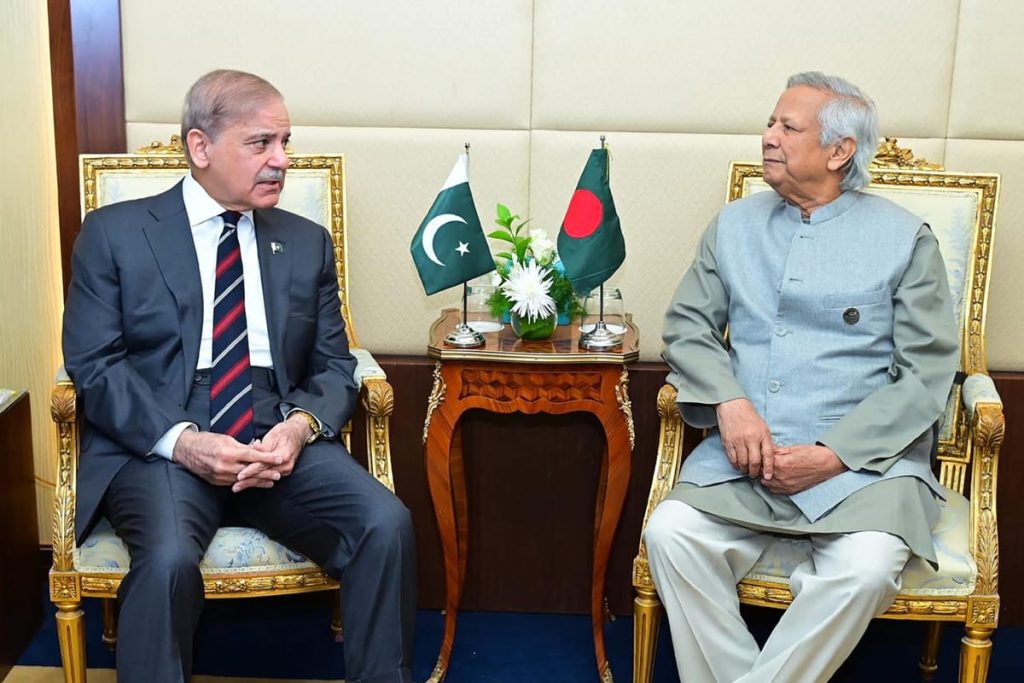In the wake of a student-led revolution that led to the ouster of Sheikh Hasina’s government, Bangladesh is undergoing a strategic diplomatic pivot. Under the leadership of interim Prime Minister Muhammad Yunus, the country has moved closer to regional powers Pakistan and China, creating a noticeable strain in its long-standing relationship with India.
Hasina’s dramatic escape to India in August 2024 ignited public outrage, which the new leadership claims has intensified distrust toward New Delhi. Bangladesh’s new direction is being steered by domestic calls for institutional reforms and broader regional cooperation.
The shift began with Yunus’s state visit to China in March, where he secured over $2.1 billion in investments, loans, and grants. Beijing has further deepened its influence by engaging with prominent Bangladeshi political figures, including members of the Bangladesh Nationalist Party (BNP), the leading contender in the upcoming 2025 elections.
Meanwhile, bilateral relations with Pakistan have seen a revival. After decades of icy diplomacy following the 1971 war, the two nations initiated sea trade last year, and direct flights are on the horizon. The warming of ties has alarmed India, especially amid recent skirmishes in Jammu and Kashmir that left over 70 dead.
In June, high-level discussions among Bangladesh, Pakistan, and China led to cooperation plans across education, agriculture, trade, and health. China has already designated hospitals for Bangladeshi patients after India restricted medical access.
Experts say India, driven by ideological concerns, is uncomfortable with the new government in Dhaka, which it perceives as Islamist-leaning and hostile. Trade relations have also soured, with both India and Bangladesh imposing various restrictions. However, former diplomats urge Dhaka to maintain balanced multilateral alliances rather than fall entirely into one bloc.
On the global front, Bangladesh is also attempting to diversify partnerships. It is exploring US trade opportunities and has proposed the purchase of Boeing aircraft and increased imports of wheat, cotton, and oil to reduce trade imbalances.
Analysts caution that tensions in the region are unlikely to resolve unless India is reassured about the credibility of Bangladesh’s next elections. Until then, New Delhi’s stance is expected to remain confrontational, possibly even aiming to destabilize the current regime.



Comments (0)
No comments yet. Be the first to comment!
Leave a Comment